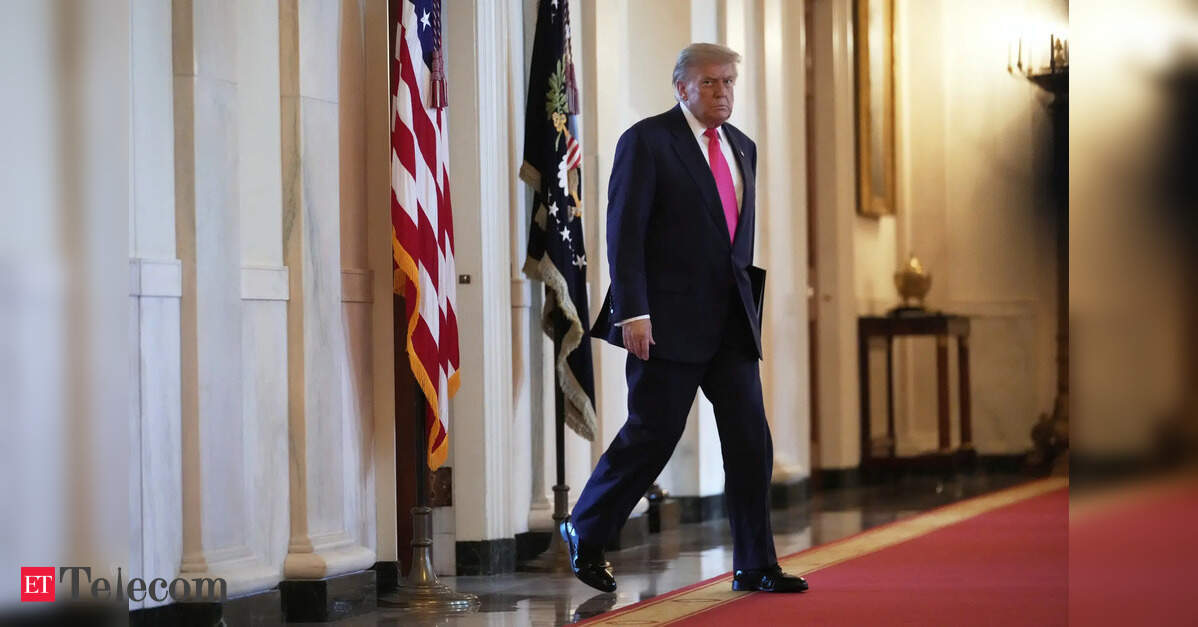Trump Turns On 'Nice' Carney With Canadian Tech Tax Ultimatum
It had all been going so well.
Since Mark Carney replaced Justin Trudeau as prime minister, Canada’s relationship with the White House appeared to be functional again, on the mend after President Donald Trump’s tariffs and overtures about making it the “51st state.”
Trump put that rhetoric aside and called Carney a “nice gentleman.” At the Group of Seven summit in Alberta last week, host Carney envisioned a new trade and security deal with the US as soon as mid-July.
Now the prime minister faces a setback, and some are calling it an unforced error.
US Stock Rally Sputters As Trump Ends Canada Talks: Markets Wrap
On Friday, Trump said he’d terminate trade talks with Canada in response to a 3% digital services tax. The levy, which would mainly hit American companies, is loathed by the White House and by Silicon Valley: the US Trade Representative and technology giants like Amazon.com Inc. say it’s a discriminatory tax.
The tax was passed more than a year ago, before Carney even entered politics, and had already prompted warnings about retaliation. But his government decided to go ahead with implementing it, and the first payment is due Monday.
The market was caught off-guard by Trump’s broadside, and the Canadian dollar and trade-exposed stocks dropped. “Economically, we have such power over Canada,” the president said to reporters on Friday.
Trade groups and experts lined up to say they’d long warned this would happen, including the American Chamber of Commerce in Canada and the Business Council of Canada, an influential lobby group representing top CEOs. Michael Geist, the Canada Research Chair in internet and e-commerce law at the University of Ottawa, called Friday’s blowup “completely avoidable”.
“In the same way that Trump has delayed implementation of certain tariffs, there was the opportunity to delay this for a period of time, and frame it as being in the spirit of seeking a broader trade negotiated deal with the United States,” Geist said.
The tax is “highly complex” and it had a three-year retroactive effect, which US officials said was very unfair. “It does seem to me that Canadian officials were, for a very long period, quite dismissive of the risks,” Geist said.
Yet others believe there’s nothing obvious Carney could have done to avoid a clash with Trump eventually, perhaps over some other irritant, like Canada’s dairy trade controls, which the president also complained about at the White House on Friday.
“It is a trip wire, in the sense that this isn’t submitting to leverage,” said Jim Balsillie, the former co-CEO of Canadian smartphone pioneer BlackBerry Ltd.
“It’s not personal — he does it with everybody,” Balsillie said of Trump and his tactics. “The mistake for Canada has been that it disproportionately made itself dependent on the US over the last 30 years.”
Many other countries also charge some kind of digital services tax, according to a report early this year by the Congressional Research Service, including the UK, which nonetheless recently struck a tariff-cutting deal with the US.
“It is a bit of a bargaining chip for Canada,” said Lori Turnbull, a professor at Dalhousie University’s faculty of management who previously worked in the Canadian civil service. “If we had folded on that before, then what? We’d have even fewer things to work with.”
“Maybe the government’s going to decide to do something different on the digital tax in response to some measure that the US might take,” she said. “I don’t think we’re in a bad position.”
Elon Musk Announces Launch Of 'Grok 4' AI Chatbot On July 4










